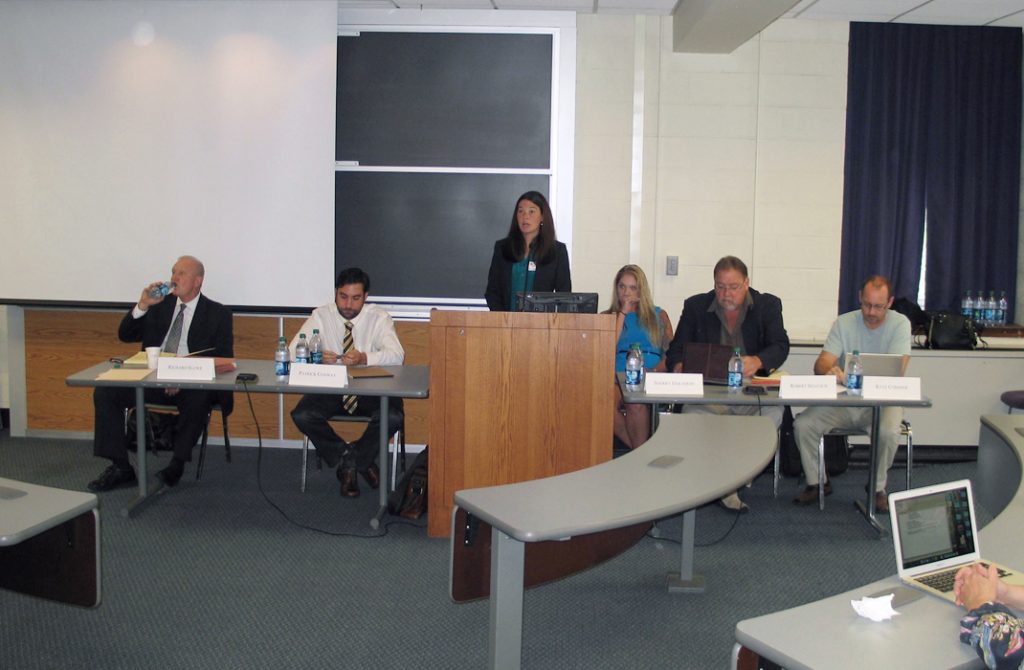Over 80 students and attorneys gathered at BC Law on September 21, 2015 for a training workshop on how to investigate post-conviction innocence cases. The workshop, taught by Chief Investigator Richard Slowe and four supervising investigators from the Committee for Public Counsel Services (CPCS), was open to students in the BC Innocence Program, as well as members of the bar who work with the CPCS Innocence Program.
“The vast majority of innocence cases cannot be solved by DNA testing alone,” said BC Law Professor Sharon Beckman, founder of the School’s Innocence Program. “For most of the wrongfully convicted, the path to exoneration depends on factual investigation. But that kind of investigation can seem daunting. Our workshop was meant to teach these skills and methods to our students and to attorneys whose work might include representing innocent prisoners.”
The conference arose from the recent expansion of the BC Innocence Clinic to teach law students to evaluate, investigate, and litigate innocence cases in partnership with the CPCS Innocence Program. Supervised by Professor Charlotte Whitmore, and in collaboration with CPCS Innocence Program attorneys and investigators, BC Innocence Clinic students now do the factual investigation required to prove cases of actual innocence.
The expansion of the BC Innocence Clinic was made possible by gifts to the BC Innocence Program and by a Teaching, Advising, and Mentoring Grant awarded to Beckman from the University Council on Teaching. The launch of Whitmore’s investigation-focused post-conviction litigation clinic this fall is supported in part by a grant from the Office of Justice Programs at the United States Department of Justice to the BC Innocence Program and the CPCS Innocence Unit. The grant also supports the BC Innocence Program’s collaboration with the New England Innocence Project.
“Professor Whitmore has already made a big impact both at BC Law and in the legal community, said Professor Beckman. “Her teaching, supervision, and collaboration with the practicing bar make it possible for our students to work on innocence cases from investigation to exoneration. Her idea of focusing our post-conviction innocence litigation clinic on cases requiring skilled investigation is inspired. It offers students a unique clinical experience and serves a compelling public need.”
Whitmore has degrees in both law and education from University of Pennsylvania Law School. She clerked for Hon. Marjorie Rendell of the US Court of Appeals for the Third Circuit, and US District Judge Anita Brody, before serving as the first staff attorney for the Pennsylvania Innocence Project. In 2014-15, she served as the first Innocence Attorney for the Office of the Middlesex District Attorney.
On Monday, October 19, Whitmore will speak at BC Law along with her client Eugene Gilyard, who was released from prison in November of 2013 after serving 15 years for a murder he did not commit. Whitmore’s investigation helped prove his innocence and secure his release.


